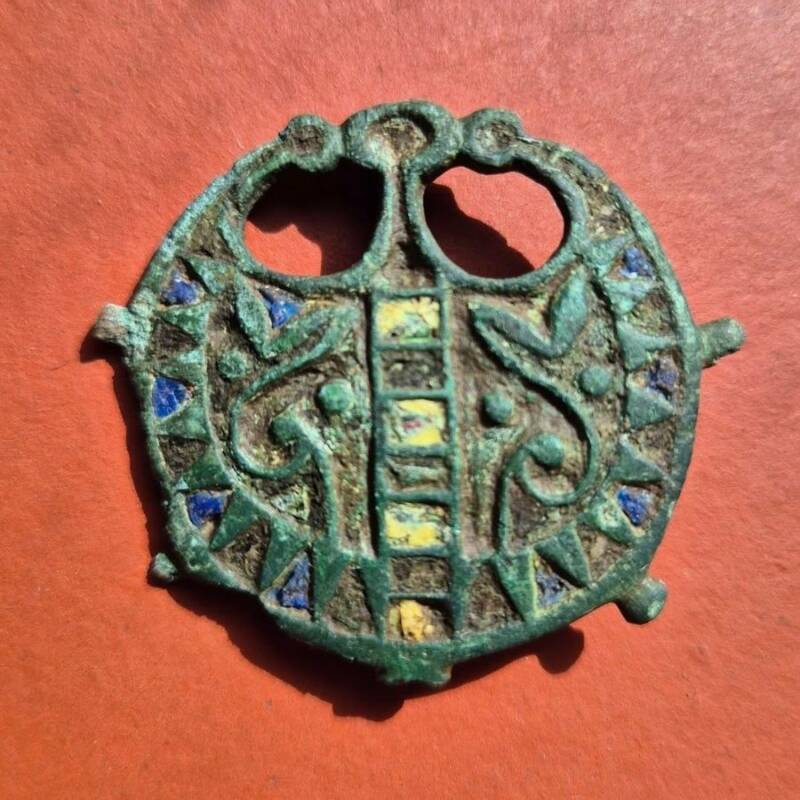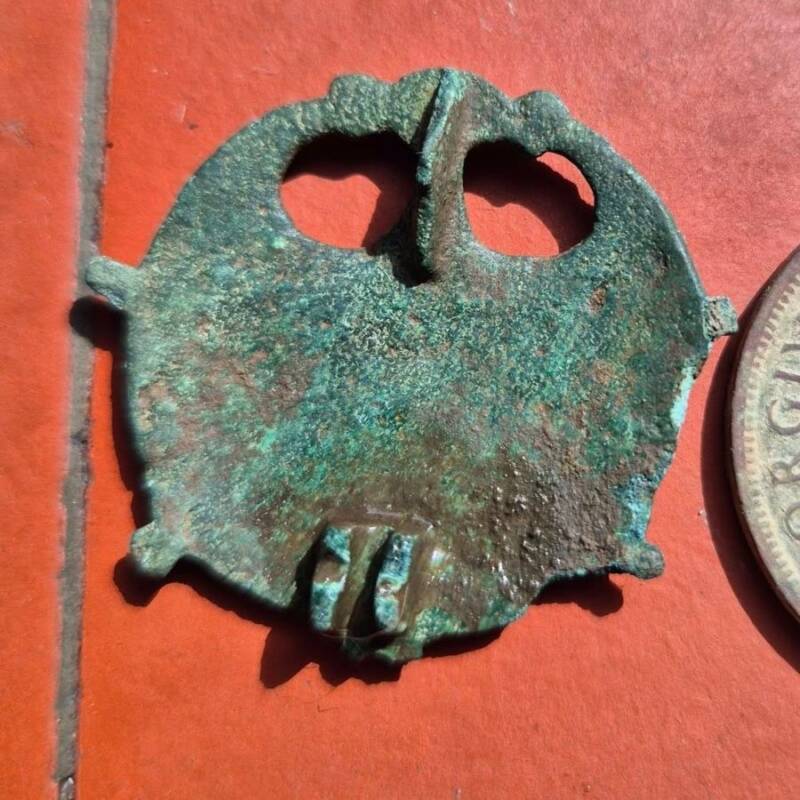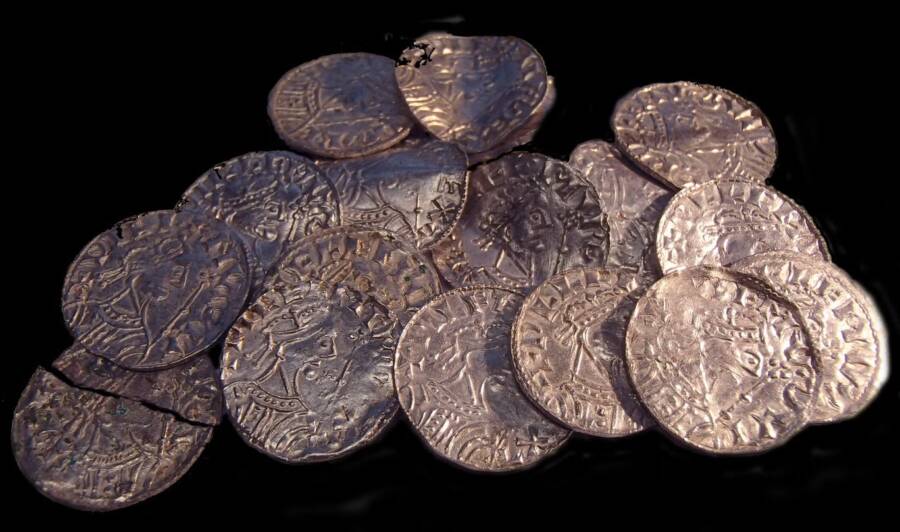Martin Turner initially thought the brooch was a child's toy and tossed it into a bag of scrap metal — but then he took a closer look at it.

Martin Turner/FacebookThe brooch is believed to be between 1,800 and 2,000 years old.
A metal detectorist thought he had found a child’s toy while searching a plowed field near his home in Dorchester, Dorset, England. It turned out that the “toy” was actually a 2,000-year-old Roman brooch.
Martin Turner didn’t think much of the object when he scooped it up and put it in his bag of scrap metal. But when he got home and cleaned it off, he realized that it was made of bronze. He alerted a local finds liaison officer, who emphasized how rare the discovery was for the area.
The Roman Brooch That Was Mistaken For A Toy
In June 2025, Martin Turner decided to search a recently plowed field near his home in Dorchester with a metal detector. About 15 minutes into his hunt, he came across a small metal object he suspected was “a kid’s toy,” as he told the BBC. He saw that it had a small latch on the back and assumed it was a pretend badge that was perhaps part of a child’s costume.
Turner tossed the item into his bag of scrap metal and continued his search. It wasn’t until after he returned home and began to clean the “badge” that he realized it was made from bronze.

Martin Turner/FacebookMartin Turner first saw the back of the brooch and thought it was a child’s toy.
“I thought, ‘Thank God,’ as I could’ve easily broken it,” Turner told the Independent. He then contacted a local finds liaison officer to inspect the artifact. English law requires anyone who finds an item of potential historical value to report it.
The object turned out to be a Roman brooch that’s likely between 1,800 and 2,000 years old. What’s more, it wasn’t a kind that was common at the time. The Romans ruled Britain from 43 until 410 C.E., when they withdrew to defend the core of their empire from barbarian invasions.
There are no known Roman roads in the immediate vicinity of the field where Turner found the brooch, but there was once a medieval church nearby. “There isn’t any Roman road through the field but I believe there is an abandoned church,” Turner told the Independent, “which could mean this belonged to someone going to or from church.”
This wasn’t Turner’s first ancient discovery, either.
Ancient Treasures Found Revealed By A Metal Detector
Turner has been a metal detectorist for the past four years, collecting enough artifacts in that time to fill 30 chests. He uses a metal detector he bought secondhand for about $800.
In 2023, he and his son uncovered 14 Bronze Age ax heads, which were sent to the British Museum in London.
“I love the buzz of finding something untouched for hundreds, sometimes thousands of years, and then linking it together with history,” said Turner. “It’s fascinating.”
Other metal detectorists across Britain have uncovered ancient treasures in recent years, too. Earlier this year, a hoard of Roman coins was discovered beneath a field in Leicestershire. And in 2023, a metal detector revealed two Roman swords still in their scabbards.
In 2019, amateur metal detectorists in the Chew Valley came across 2,584 silver coins dating back to the Norman Conquest. This Chew Valley hoard later sold for $5.6 million, making it the most valuable treasure ever dug up in Britain.

British MuseumSome of the coins in a hoard discovered by metal detectorists in 2019.
The brooch is now being examined to determine if it classifies as treasure. Under the Treasure Act, the brooch can be acquired by a museum — with a reward given to Turner — if it is considered to be of historical, archaeological, or cultural importance. If not, it will be returned to Turner.
If Turner gets the brooch back, he plans to either donate it to a museum himself or give it to the owners of the land where he discovered it, as he’s found other objects in their fields before.
“They let me keep the coins and the posie rings,” said Turner, “so it’d be nice to give them something back.”
After reading the metal detectorist in England who found a rare Roman brooch, learn about Queen Boudica, the Celtic ruler who took revenge against the Romans. Then, go inside the mystifying history of the Druids.





